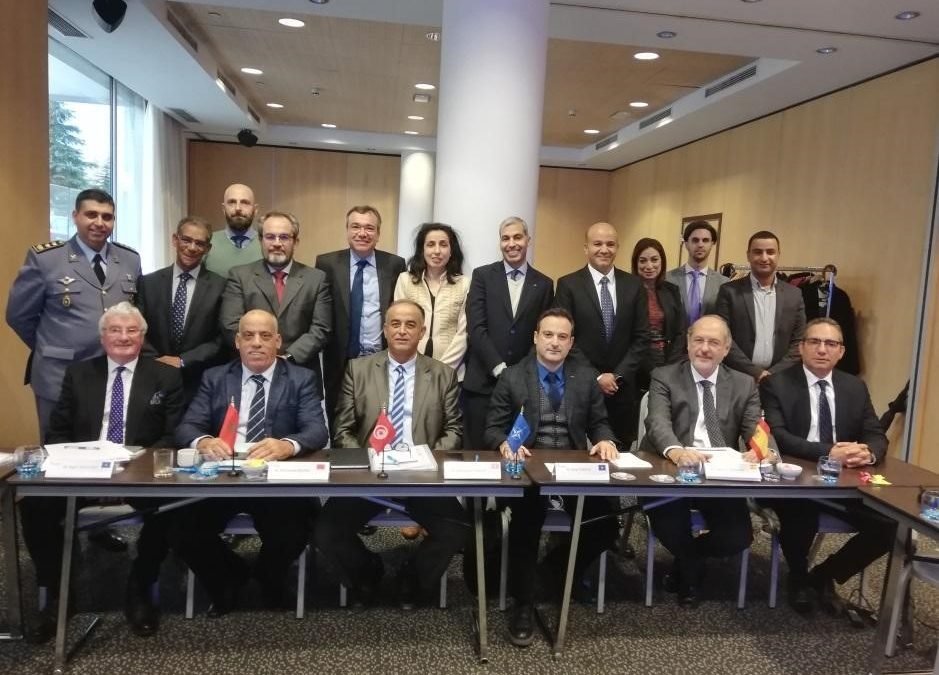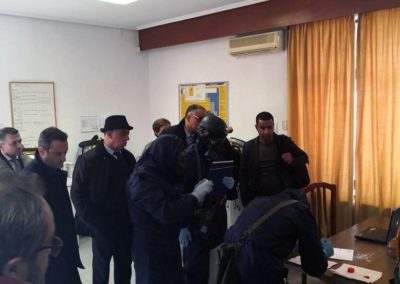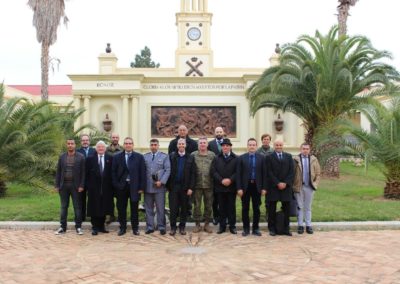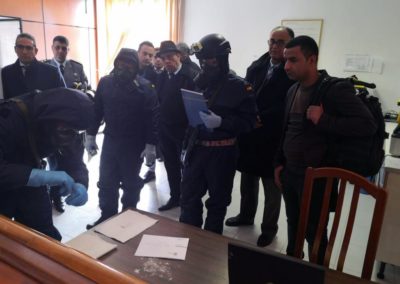On November 21 and 22, the official launch of DIM-LAB, “Deployable biological & chemical analytical laboratory”, a project supported by NATO, took place within the framework of the NATO program “Science for Peace and Security.
The main objective of the project is to provide Tunisia and Morocco with CBRN capabilities for the detection, identification and monitoring of hazardous chemical and biological agents. The event brought together representatives of NATO-SPS Programme, Spanish Ministry of Defense, ADELFAS and delegations from Morocco and Tunisia, made up of partners, end users and representatives of their respective Ministries of Defense.
DIM-LAB is a scientific project led by ADELFAS, a Spanish non-profit association. It aims to design and build according to STANAG-4632 and applying available nano-biotechnology, two CBRN deployable laboratories, chemical and biological, of dual use: civil and military, destined to NATO partner countries, and within the framework of its program “SCIENCES FOR PEACE AND SECURITY”. NATO-SPS programme is an instrument of the Alliance to promote and promote dialogue and technological cooperation between allied countries and partners, through scientific research, technological innovation and the exchange of knowledge and experience.
The duration of the project is estimated at about three years and as participants they highlight: the ADELFAS association, whose member Ibatech Technology, provides similar experiences and the technicians for the development of the systems, the 1st Regiment of NBC Defense “Valencia” and SDGPLATIN / DGAM, the Faculty of Sciences of the Mohamed V University and the General Directorate of Civil Protection of Morocco, and the Institute of Applied Sciences and Technology INSAT, the General Directorate of Environment and Quality of Life and the National Office of Civil Protection of Tunisia. This NATO project seeks the development of CBRN drop-down laboratories, “turn-key solutions”, within the counter-terrorism structure, promoting research, cooperation and technology transfer within the framework of the Mediterranean dialogue. The official launch took place over two days. After a first day of work where the technological needs of each country and the relevant milestones for the execution of the project were analyzed, the second day a visit to the facilities of the 1st Regiment of NBC Defense “Valencia”, located in Paterna, was continued. Practical NRBQ exercises for chemical and biological detection and identification were developed




